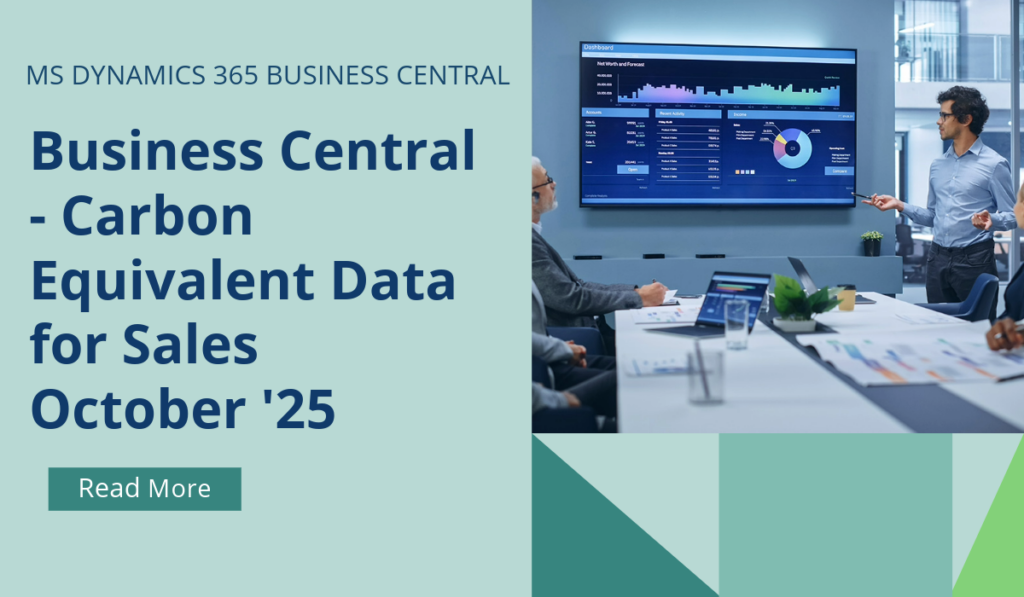
Business Central – Provide Carbon Equivalent Data for Sales
Sustainability Scope 3 value chain process automation involves using standard ERP processes to streamline the collection, calculation, and reporting of indirect emissions data across the upstream and downstream corporate value chain. The processes improve accuracy, efficiency, and compliance with sustainability goals. Scope 3 is significant for accurate tracking because it represents the majority of emissions, influences business decisions, and aligns with many regulations.
Scope 3 is also probably the most complex for measuring because it requires data from multiple sources. For example, information from vendors but also internal operations such as transfers, manufacturing, and so on. This feature provides flexibility by enabling you to provide accurate emissions information about the items you sell.
From October 2025, Business Central can accurately calculate item emissions based on values in Sustainability Value Entries, which currently only use the Average method. These values are used to add the calculated, read-only CO2e per Unit and Total CO2e fields on lines on sales documents. Note that this release doesn’t extend document reports to include the additional CO2e emission values.
If you’d like to discuss more about Business Central’s upcoming changes, or about making the move across to BC, reach out today to Brookland Solutions for a no obligation discussion. Get in touch!
May 14, 2025
RECENT POSTS
When Does Business Central Need Power BI?
At a Glance Power BI for Business Central is Microsoft’s business intelligence (BI) tool that connects to Dynamics 365 Business Central and turns ERP data into interactive dashboards, charts, and reports. It helps teams move [...]
Why Business Central Upgrades Matter More Than Ever in 2026
At a Glance Microsoft Dynamics 365 Business Central requires regular minor and significant upgrades to remain secure, compliant, and fully functional. In 2026, making these upgrades is critical to access performance improvements, automation, regulatory updates, [...]
Do I Need Add-Ons for Business Central?
At a Glance Business Central add-ons extend the ERP’s standard functionality to address gaps such as advanced reporting, compliance, warehousing, and automation. They are deployed as secure extensions that integrate with core Business Central, remain [...]



